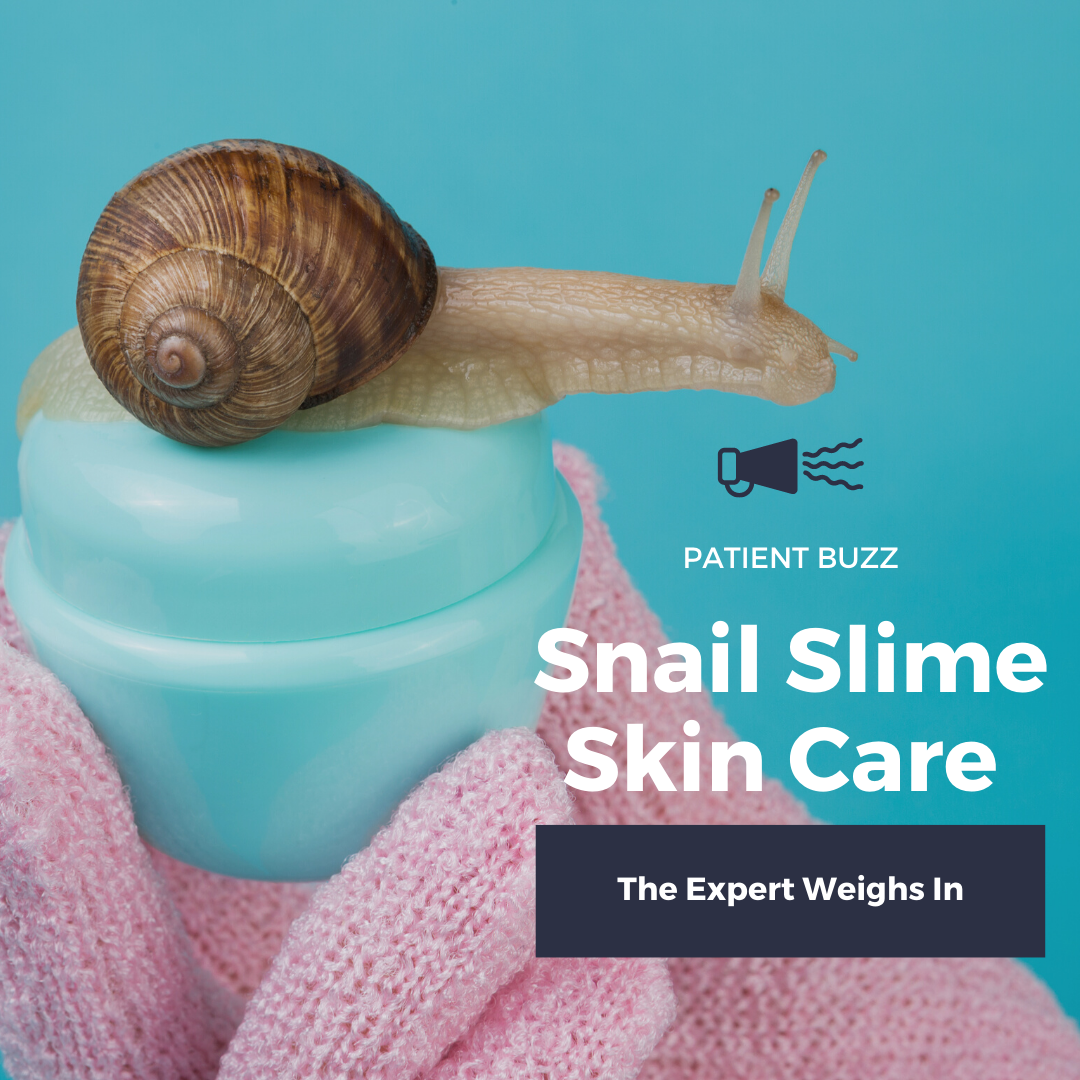Women’s Health recently wrote an article about the benefits of snail slime (also known as snail mucin) in skincare products. Does research support claims of hydrating and anti-aging benefits? Should dermatologists recommend snail mucin products?
For expert advice, I contacted dermatologist Angelo Landriscina, MD, who offers evidence-based skincare advice on his blog, DermAngelo.com.
Is there any research that supports snail mucin in skincare products?
Snail mucin is a current “hot” ingredient found mostly in Asian skincare products. Most of the snail mucin found in consumer products is extracted from the species Cryptomphalus aspersa – a common garden snail. It is rich in glycosaminoglycans, including hyaluronic acid, as well as collagen, allantoin, antimicrobial peptides, glycolic acid, and antioxidants like superoxide dismutase. Based on that molecular profile, we can see that snail mucin provides hydration due to its humectant content. It may also be beneficial in supporting collagen production over time. In Vitro studies have shown that it promotes proliferation and survival of both keratinocytes and fibroblasts. Clinical studies to date have been few, short, and small in size. One split-face study of 25 women showed an improvement in both participant- and investigator-assessed periocular and facial rhytids versus placebo over the course of 12 weeks.
How does snail mucin compare in effectiveness with other ingredients that have hydrating or anti-aging properties?
It is difficult to compare the efficacy of snail mucin to other tried-and-true topical therapies with anti-aging benefits because there is a lack of any head-to-head studies. This is a consistent challenge when it comes to recommending consumer products – it is difficult to say which is best due to a lack of publicly available data. That said, there are plenty of consumer products containing humectants, antioxidants, glycolic acid, and the like.
Should dermatologists recommend their patients use skincare products with snail mucin?
While I wouldn’t dissuade my patients from using products with snail mucin, I’m not sure I’d recommend it over treatments with more data behind them, such as prescription-strength retinoids. Snail mucin may be the perfect ingredient for a patient who wants to add antioxidants, humectants, and collagen-supporting ingredients without using too many individual products. Lastly, patients may take issue with the use of snail mucin on an ethical basis – it is not vegan, and whether or not it can be considered “cruelty-free” is debatable.
Did you enjoy this Patient Buzz Expert Commentary? Find more here.

